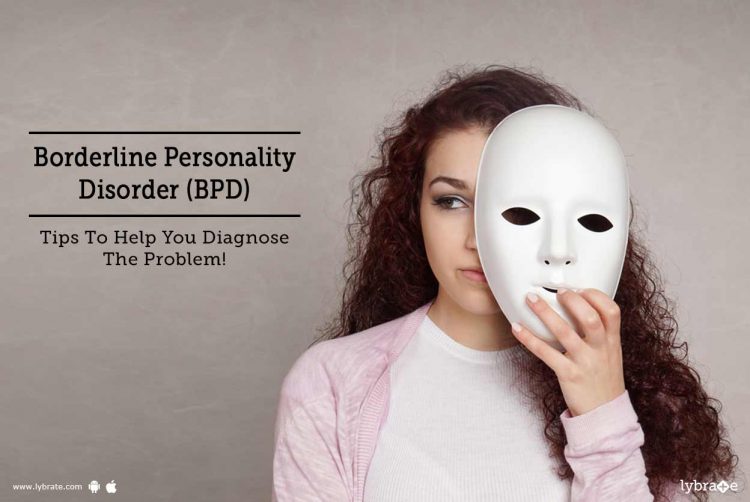Borderline Personality Disorder (BPD)
Borderline personality disorder is a mental health condition that impacts one’s self-perception and relationships, leading to difficulties in daily life. It is characterized by self-image issues, difficulty managing emotions and behavior, and volatile relationships. Individuals with borderline personality disorder often experience intense fear of abandonment, difficulty tolerating solitude, anger, impulsiveness, and mood swings, which can hinder relationships. The disorder typically begins in early adulthood and worsens in young adulthood but can gradually improve with treatment. Those with borderline personality disorder should not be discouraged, as many individuals can improve over time with treatment and live happier lives.
Symptoms of Borderline Personality Disorder

Borderline character disorder is a condition that affects one’s self-perception, communication, and behavior. It involves intense worry of abandonment, unstable relationships, stress-related paranoia, risky behavior, suicidal threats, and inappropriate anger. Symptoms include intense worry of abandonment, unstable relationships, and a loss of contact with reality. Impulsive and risky behaviors may include gambling, reckless driving, dangerous sex, spending sprees, binge-eating, drug abuse, or sabotaging fulfillment. Suicidal threats or self-injury may also occur due to fear of separation or rejection. Inappropriate, severe anger can also be experienced, including losing temper, being sarcastic or bitter, or engaging in bodily fights.
When to See a Doctor in Borderline Personality Disorder
If you are aware that you have any of the signs and symptoms or signs and symptoms above, communicate to your physician or a mental fitness provider.
Suicidal Thoughts in Borderline Personality Disorder
If you have suicidal thoughts or fantasies, seek help immediately by calling 911 or your local emergency number. In the US, call the National Suicide Prevention Lifeline at 1-800-273-TALK or the Veterans Crisis Line at 1-800-273-8255. Contact your mental health provider, health practitioner, or a trusted friend or coworker. If you notice signs of borderline personality disorder in a family member or friend, inform them about seeking help. However, you cannot force someone to seek help. If the relationship causes stress, consider seeking therapy yourself.
Causes of Borderline Personality Disorder

The reasons for BPD aren’t entirely understood, but scientists agree that it is the result of a mixture of factors, including:
· Genetics. While no unique gene or gene profile has been proven to directly cause BPD, studies suggest that humans who have got a close member of the family with BPD can be at a better chance of developing the disorder.
· Environmental factors. People who revel in demanding life events—such as physical or sexual abuse at some stage in early life or overlook and separation from parents—are at increased threat of developing BPD.
· Brain function. The emotional regulation machine can be exclusive in humans with BPD, suggesting that there’s a neurological basis for several symptoms. Specifically, the amounts of the brain which control emotions and decision-making/judgment might not be able to talk optimally with one another.
Diagnosis of Borderline Personality Disorder
There is not any final medical check to help diagnose BPD, and determination has been made that does not appear to be based totally on one unique sign or symptom of borderline personality disorder. BPD is best recognized by using a mental health professional following a complete medical interview that may include speaking with previous clinicians, reviewing previous medical reviews, and, when appropriate, interviews with buddies and their own family.
Treatment of Borderline Personality Disorder

An effective treatment borderline personality disorder of plan should encompass your preferences whilst additionally addressing other co-present conditions you can have. Examples of remedy alternatives include psychotherapy, medications, and group, peer, and family support. The overarching aim of treatment is for someone with BPD to increasingly self-direct their remedy plan as they study what works and what doesn’t.
· Psychotherapy—together with dialectical behavioral therapy (DBT), cognitive-behavioral therapy (CBT) and psychodynamic psychotherapy—is the primary line of preference for BPD. Determining ways to cope with emotional dysregulation in therapeutic putting is frequently the key to long-time period development for the ones experiencing BPD.
· Medications can be instrumental in a treatment plan. However, there’s no one remedy to treat borderline personality disorder mainly made to treat the core signs and symptoms of BPD. For example, mood stabilizers and antidepressants help with temper swings and dysphoria. And for some, the low-dose antipsychotic remedy may assist control signs and symptoms along with disorganized thinking.
Takeaway
Some elements associated with personality improvement can boom the threat of growing borderline personality disorder.
These include:
· Hereditary predisposition. You may be at a better danger if a near relative — your mother, father, brother, or sister — has the same or a comparable disorder.
· Stressful childhood. Many humans with the disorder report being sexually or physically abused or unnoticed during childhood. Some human beings have lost or had been separated from a parent or near caregiver while they were young or had a dad and mom or caregivers with substance misuse or different mental health issues. Others have been exposed to hostile warfare and unstable family relationships.













Be First to Comment